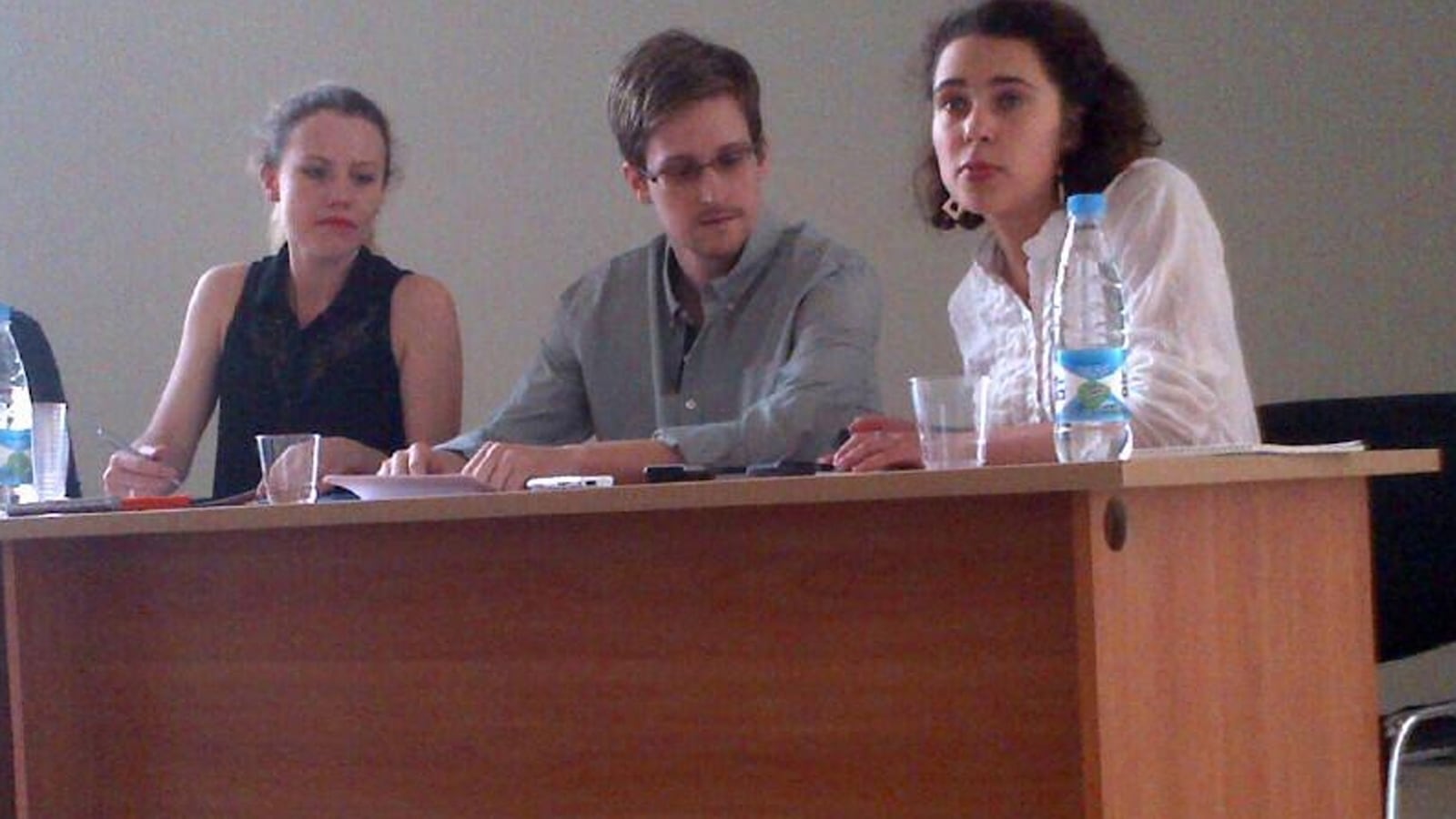The deputy director of Human Rights Watch’s Moscow office, Tanya Lokshina, appeared to be in a difficult situation. The whistleblower Edward Snowden, wanted by the United States, had invited her organization, along with about a dozen others Russian and international human rights groups, to listen to a brief statement and discuss his next steps. All those invited were Russian citizens; some wanted to help Snowden, others said their priority was to help Russia put an end to this strange three-week saga of him hiding from reporters at Moscow’s Sheremetyevo International Airport. The former NSA contractor’s decision to meet with rights groups meant “he must have run out of free air completely,” Lokshina suggested. Clearly Snowden was going to announce his intention to ask Russia for asylum, experts said. But would he obey President Putin’s conditions and stop leaking damaging NSA information?

All day long, Lokshina’s two cell phones kept ringing. Reporters wanted to know what she expected from the meeting with Snowden and how Human Rights Watch could help the whistleblower at this point. One of the calls came directly from the U.S. Embassy. A diplomat said he was calling on behalf of Ambassador Michael McFaul, who wondered if Lokshina could let Snowden know that the ambassador did not consider him a rights campaigner but a criminal who broke American laws and damaged to the security of his country. Lokshina looked hesitant. “But I am a human rights defender, so I don’t think it would be appropriate for me to pass on such a message,” she said in an interview on the train to Sheremetyevo. The only thing she was coming to find out was what role Snowden envisioned for human rights groups in his rescue operation.
Henry Reznik, a prominent lawyer, also was invited to the meeting. He said he hoped Snowden was going to leave Russia. “Nobody should be expecting high morals or a human rights role from Putin,” Reznik said. “As a politician, the president would breathe much easier if Snowden left.”
None of the invited experts were specialists on refugee issues, but Lokshina expressed sympathy for Snowden’s predicament and criticized the American authorities for their treatment of another whistleblower, Bradley Manning. “I feel genuinely sorry for Snowden,” she said. “He seems to be trapped like a rabbit, running out of options to ever be free again.”
Lokshina called her role, along with that of other rights defenders, “challenging.” More than 50 percent of Americans support Snowden’s actions, she said, but American law would punish him severely. He could stay in Russia, but Putin has promised him asylum only if he stops releasing information that could damage the United States. “That to me is clearly wrong. Nobody can set the conditions for a person requesting refugee status,” Lokshina said.
At what Russian reporters called “a historic meeting,” which took place at the airport, in a room with three rows of chairs, it turned out Snowden had a rather complicated request for the people gathered to “intervene” in his negotiations with Putin. He looked pale, nervous, and as if he hadn’t been eating much, but he didn’t give the impression of a man compelled to be there or speaking against his will. In a 20-minute speech, he explained that eventually he would like to make it to Latin America, but as an initial step, he had to apply for asylum in Russia. Asked whether he had plans to leak more sensitive information, he replied in the negative. “He said he would not release any damaging information,” Lokshina said—news that was greeted with general relief.






